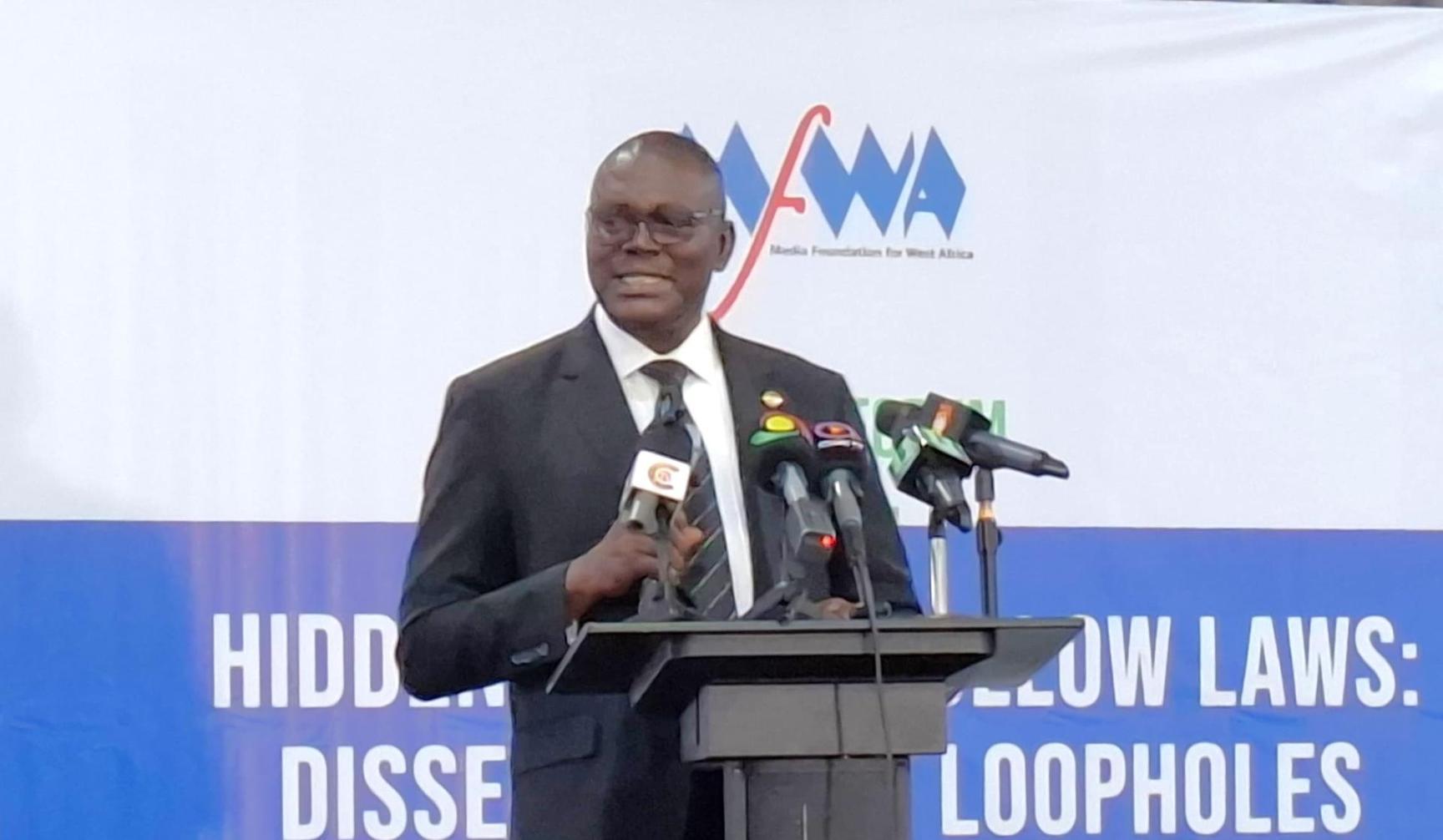Africa-Press – Ghana. Professor Abdallah Ali-Nakyea, a tax expert, has called for the prosecution of financial institutions culpable in receiving and/or transferring proceeds of corruption without tracing the sources of such monies.
The Associate Professor of Tax Law and Policy at the University of Ghana School of Law said prosecuting such banks, alongside corrupt public officers and private individuals and businesses would help curb the practice of banks being used as conduits to hide stolen monies.
Prof Ali-Nakyea made the call in his keynote address at a multistakeholder forum on corruption convened by the Media Foundation for West Africa (MFWA) in Accra on Thursday.
The forum was on the theme: “Hidden riches, hollow laws: Dissecting the loopholes that fuel corruption in Ghana.”
He expressed concern about the private sector, including banks, becoming an enabler of corruption, particularly through procurement, payment of kickbacks, and lack of transparency in their operations.
Businesses found to have engaged in corrupt activities should be blacklisted from government business to promote ethical practices that would serve the national interest, he said.
“Businesses should adopt ethical practices, comply with anti-corruption laws, and promote transparency in their operations. They can also support anti-corruption initiatives,” Prof Ali-Nakyea said.
He urged financial institutions to “pay attention to the red flags of politically exposed persons” and called for strict monitoring and checks in the banking system while applying the anti-money laundering laws.
“The fight against corruption requires a holistic effort from all agencies involved. The government, anti-corruption agencies, and the judicial arm of government must collaborate to ensure that corruption and corruption-related offences are adequately punished, after the recovery of sums and assets involved,” he said.
An assessment by the Ghana Anti-Corruption Coalition suggests that Ghana loses approximately three billion US dollars each year to corruption, depriving the nation of critical resources needed for development.
According to the International Monetary Fund (IMF), corruption reduces a country’s Gross Domestic Product (GDP) by at least 0.5 per cent.
That, the World Bank said, enriched the corrupt and robbed generations of the future.
Speaking to the statistics, Dr Kojo Impraim, Programme Director, MFWA, said the fight against corruption and illicit financial flows bestowed on Ghanaians a civic responsibility and central pillar of a thriving democracy.
“Our appetite for combating corruption and illicit financial flows should be quadrupled and remain stronger than what the intelligential and the professional bodies developed, to secure a democratic government for us in the late 1980s and early part of 1990s,” he said.
Mr Micheal Boadi, Fundraising Manager, Ghana Integrity Initiative, said Ghana’s Asset Declaration regime was “flawed” and emphasised the need for officers to also declare their liabilities.
“We are calling for verification and publication to enhance the asset declaration regime. Nobody has tested the law by going to verify what they declare,” he added.
Madam Lucy Abebrese, Head of Compliance, Financial Intelligence Centre, urged the media to verify information with the Centre before publication to avoid misinforming the public.
Madam Sedina Gbeve, Senior Legal Officer and Prosecutor, Economic and Organised Crime Office, appealed to the public to volunteer information to the Office and assured whistle-blowers of the protection of their identity and safety.
For More News And Analysis About Ghana Follow Africa-Press







